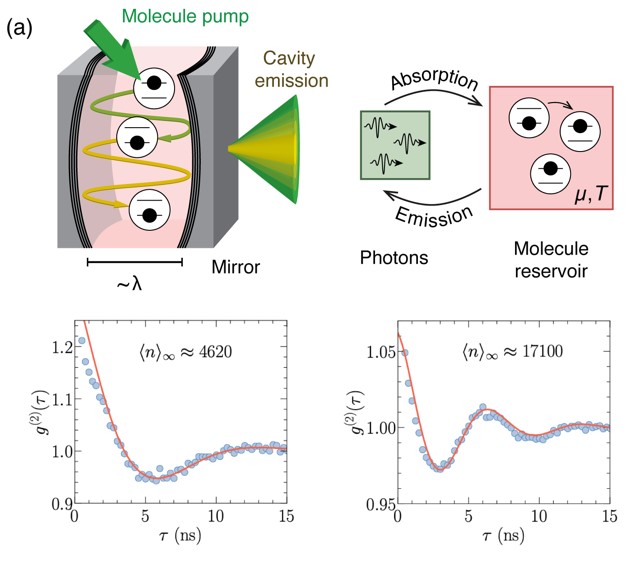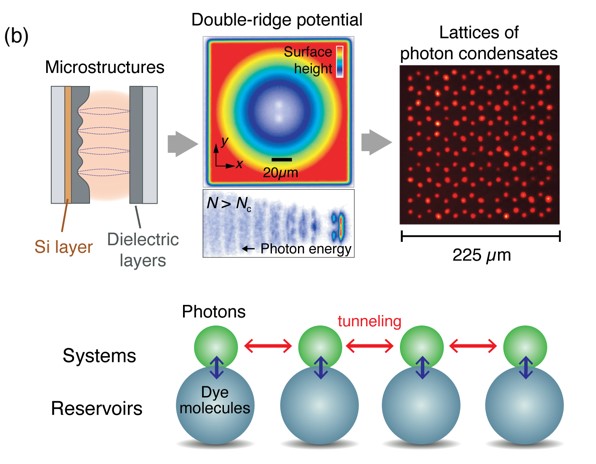B1: Reservoir control of an open photon Bose-Einstein condensate system
Martin Weitz, Frank Vewinger & Johann Kroha
The aim of this project is to study novel dynamical effects enabled by a coupling of a photon Bose-Einstein condensate to a dye reservoir. In our experimental system photons are confined in a dye-solution filled optical microresonator, where photons thermalize by repeated absorption-re-emission processes in the dye molecules to room temperature. This process is very well described by a grand canonical coupling of Bose-Einstein condensed photons to a reservoir of dye molecules. In the past funding period, in joint experiment- theory collaboration we have discovered a non-Hermitian phase transition of the grand- canonical photon Bose-Einstein condensate. Moreover, we have carried out a novel test of the fluctuation-dissipation relation of the photon condensate coupled to the reservoir, and for the first time in a quantum gas of light, determined its mechanical compressibility. We have developed a Keldysh propagator as well as a systematic cumulant expansion method for the non-Markovian quantum time evolution of driven-disspative systems coupled to a bath. Building upon this work, in the next funding period we we will investigate unconventional fluctuations of density correlations at the nonhermitian phase transition. Moreover, we will experimentally realize and theoretically study ring-shaped potentials for the photon gas. These will be both continuous rings and discrete, ring-shaped chains of microresonators. We will study the phase and current fluctuations in the rings which are expected to be enhanced by the grand-canonical nature of the photon–molecular bath system. Based on the knowledge gained, we will theoretically and experimentally perform photon density quenches as to study non-Hermitian Kibble-Zurek dynamics in these rings.


